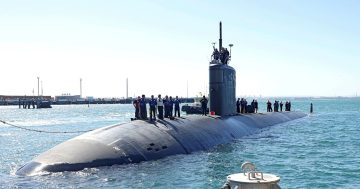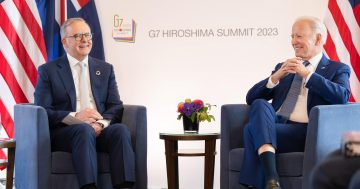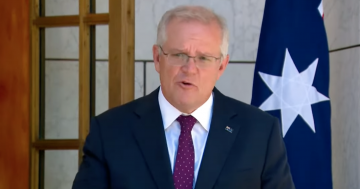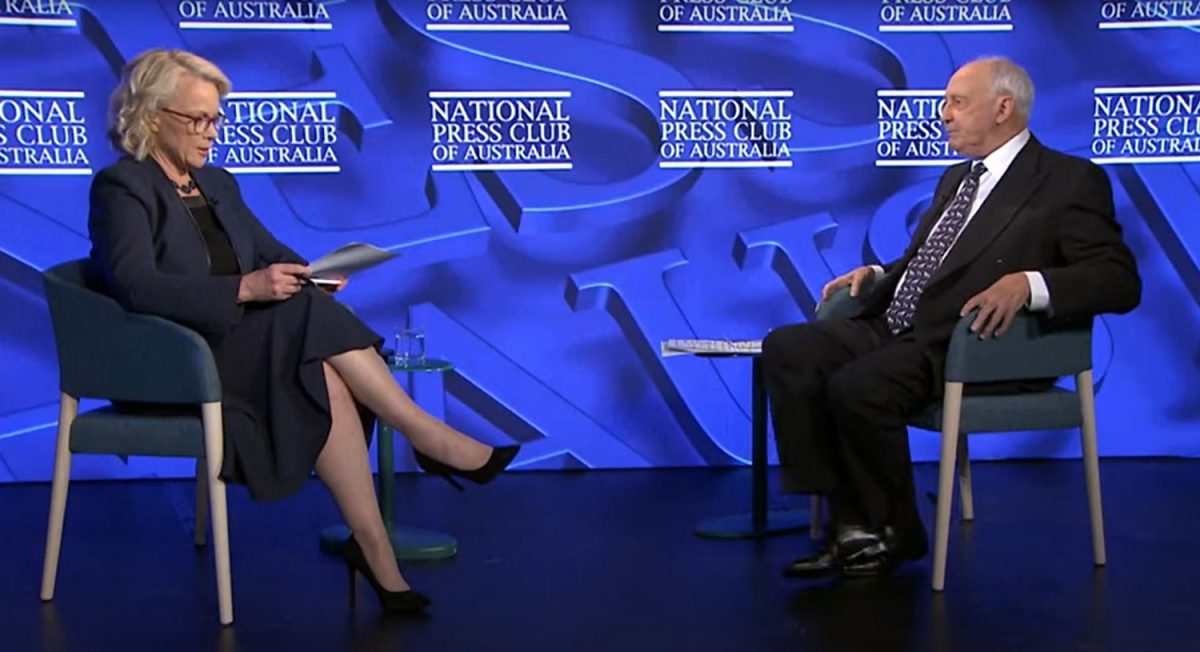
Former Prime Minister Paul Keating and National Press Club President Laura Tingle during yesterday’s press Club address. Photo: Screenshot.
“Once I leave, I leave. I am not going to speak to the man on the bridge and I am not going to spit on the deck,” former British Prime Minster Stanley Baldwin reportedly promised about his future conduct shortly before he retired in 1937.
No doubt after his address to the National Press Club yesterday, many in the Labor Party and Defence would be wishing Paul Keating had adopted a similar mantra.
Mr Keating was there to talk about Tuesday morning’s announcement by Prime Minister Anthony Albanese, US President Joe Biden and British PM Rishi Sunak of the “optimal path” the AUKUS construct would take for Australia to acquire nuclear-powered submarines.
He didn’t hold back, telling National Press Club President and ABC chief political correspondent Laura Tingle that the AUKUS announcement was “the worst international decision by an Australian Labor Government since Billy Hughes sought to introduce conscription in World War I”.
He said that, over the past century, he felt Labor has “mostly got it right”. He cited the example of the party “knocking Hughes off” over conscription and that Labor Prime Minister John Curtin had got it right in “knocking Churchill off” in 1942 over the British PM’s plan to keep Australian troops in Burma instead of bringing them back to Papua New Guinea.
He also said Labor leader Arthur Calwell had “got it right” when he opposed Australia’s participation in the Vietnam War in 1965 and that Labor leader Simon Crean “got it right” when he said Australia should not send troops to the Iraq War in 2002.
“So, Labor has had a knockout set of ‘rights’ against the Coalition,” he said. “But this one is where we break that winning streak!”
Mr Keating said China was not a threat to Australia and that it was a distortion and an untruth that China has ever “implied they would threaten or said it explicitly”.
“What ‘threatens us’ means is an invasion of Australia,” he explained.
“It doesn’t mean firing a few missiles off the coast like the Japanese did in 1943, firing a few things into the eastern suburbs of Sydney. It means an invasion. All great battles are fought on land. They’re fought as invasions.”
Warfare historians and students may disagree with his last argument, and point to the Battles of Midway in World War II, Jutland in World War I, Tsushima in the Russo-Japanese War of 1904/05, and Trafalgar in 1805 – all of which were momentous sea battles that changed the course of wars – as clear counterpoints.
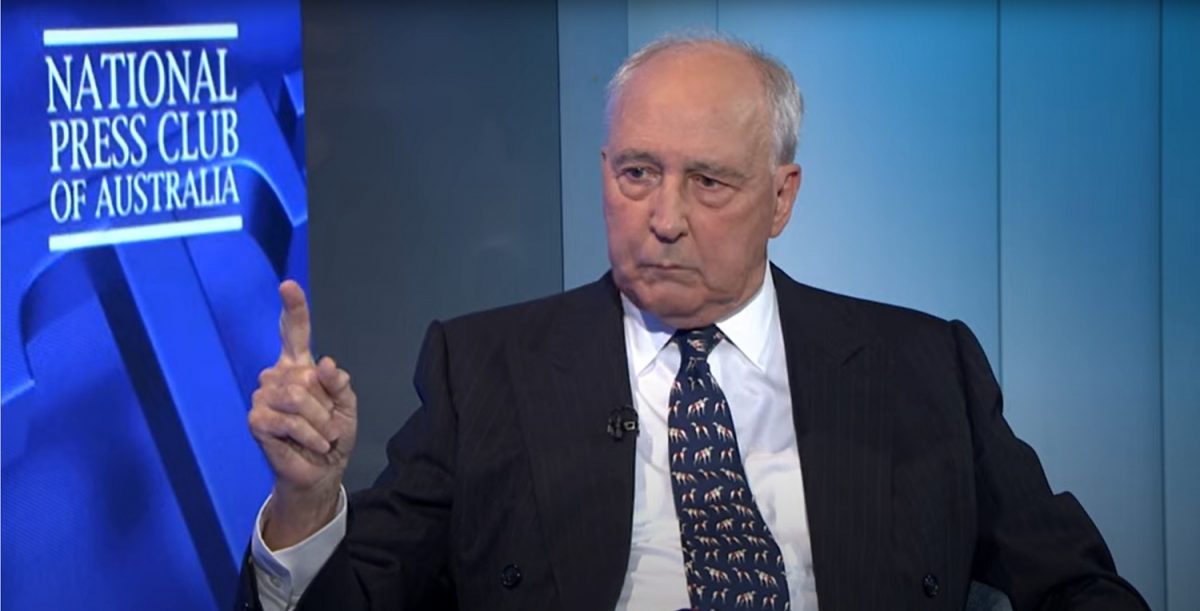
Mr Keating makes a point during his National Press Club address. Photo: Screenshot.
Mr Keating cited Hitler’s invasion of the Soviet Union in 1943, Napoléon’s European forays in the early 1800s, and the more recent invasion of Ukraine by Russia as examples of land wars and drew a somewhat tenuous parallel with the current geopolitical situation in the Indo-Pacific.
“The only way China could threaten Australia, or attack it, is on land,” he said. “That is, they bring an armada of troop ships with a massive army to occupy us.
“But, this is not possible for the Chinese to do because you would need an armada of troop ships,” he added.
“And they’d need to come 13 days of steaming 8,000 km [between] Shanghai and Brisbane, say, in which case, we would just sink them all. The moment they leave their port, they’re visible.”
While he quite rightly said a surprise large-scale amphibious invasion over great distances is “impossible today” because of continuous satellite coverage, his hypothesis may be viewed as being somewhat naïve and one-dimensional.
What he missed, conveniently or otherwise, is the fact that, in the modern age, major powers that possess intercontinental ballistic missiles and submarines and surface vessels with long-range land and maritime-attack missiles can threaten other nations without one soldier ever needing to land or wade ashore on foreign soil.
Similarly, many powers possess the capabilities to cripple an adversary through the use of tactics in that ‘grey zone’ that exists outside of direct warfare, instead employing capabilities such as large-scale cyber attacks against critical infrastructure, or as Australia has seen in recent years, trade sanctions that can decimate key industries almost overnight.
While there are many valid arguments that there may be better ways for Australia to spend $368 billion, Mr Keating’s naivety towards China’s, or rather, the Chinese Communist Party’s rising power and threat to democracy in our region is unarguable.















